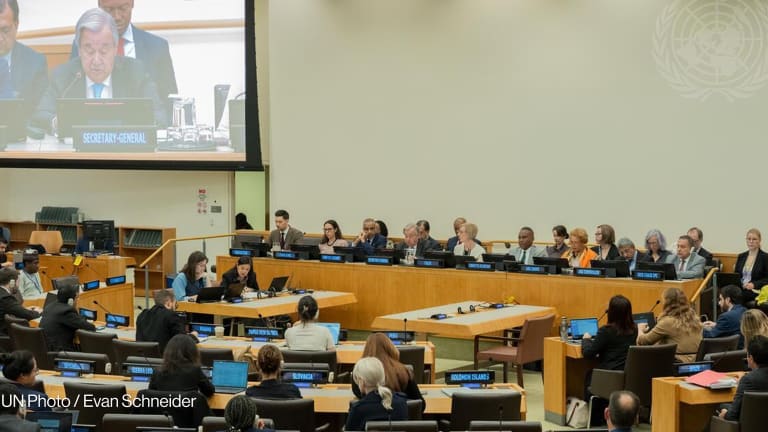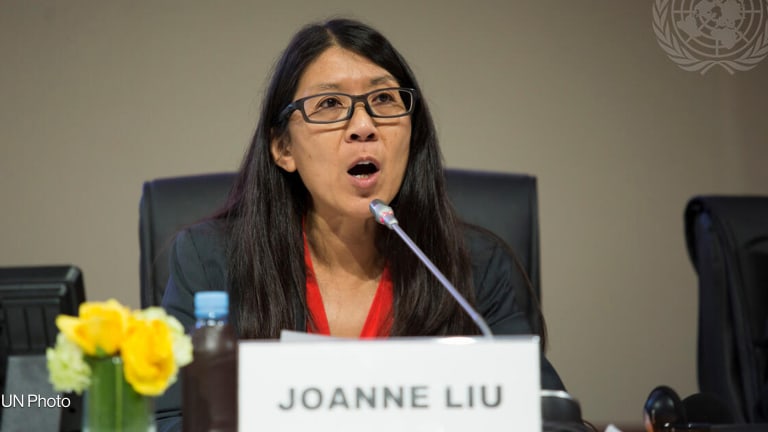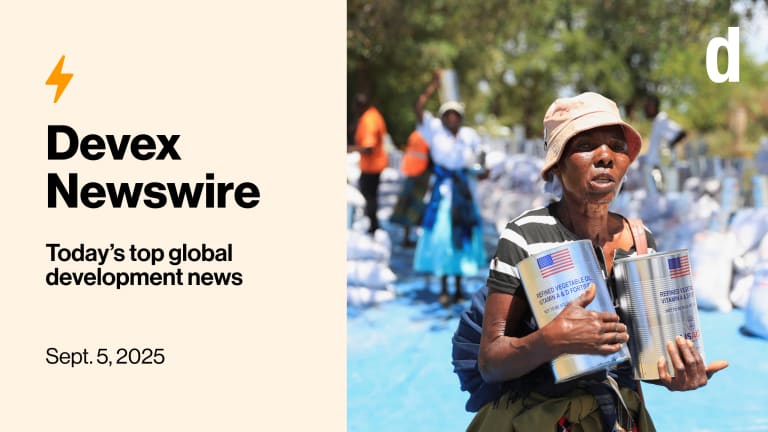
The United Nations is lobbying hard to try and reverse the Norwegian government’s plan to spend millions of dollars initially earmarked for U.N. bodies on hosting Ukrainian refugees in Norway instead.
The Pro read:
Interactive: Trends in Norwegian aid
In 2020, Norway allocated over $4 billion — 1.11% of its GNI — to development including $1 billion for COVID-19 related activities. Devex dug into Norway’s development funding to showcase its funding trends, sectoral priorities, and geographical focus in the last four years.
Oslo’s revised budget proposal, released earlier this month, would see 4 billion Norwegian krone ($415.67 million) in development funds reallocated to so-called in-donor refugee costs. That’s allowed under the Organisation for Economic Co-operation and Development’s accounting rules, but has long been decried by campaigners as “inflated aid” that saps money from low-income countries abroad.
U.N. Secretary-General António Guterres called Norwegian Prime Minister Jonas Gahr Støre last week to register his concern at the move, which must still be voted through parliament.
The Norwegian government said in a press release on May 12 that its overall aid budget would increase by NOK 3.6 billion to NOK 44.9 billion. Half of that increase will go to “refugee-related measures in Norway,” while funding for Ukraine and neighboring countries will increase by NOK 1.75 billion to at least NOK 2 billion.
Yet the move to also redirect NOK 4 billion from existing aid commitments drew immediate criticism.
“This is a moment of truth.”
— Ulrika Modéer, U.N. assistant secretary-general and director of UNDP’s Bureau of External Relations and Advocacy“It’s covering costs of receiving refugees in Norway by cutting on a whole variety of budget items in far poorer countries,” Dagfinn Høybråten, secretary general of Norwegian Church Aid, told Devex by phone last week. “And this happens at the same time as Norway is profiting dramatically on the higher gas and oil prices caused by the very same war in Ukraine.”
Under the proposal, funding to the United Nations Development Programme would fall by NOK 440 million, UNICEF would lose NOK 357.5 million, and the World Health Organization would be down by NOK 118 million. The changes also mean cuts in other overseas development budget lines, such as education, which is down NOK 553 million; health, down NOK 470 million; support to Africa, down NOK 250 million; and civil society, down NOK 208 million.
Ulrika Modéer, U.N. assistant secretary-general and director of the Bureau of External Relations and Advocacy, UNDP, told Devex by email Monday that the cuts would “hamstring UNDP’s work, and that of the entire UN development system.”
Emphasizing that the cuts to UNDP would hit its flexible, core budget, Modéer explained that “up to 90 percent of UNDP’s core budget is put to work in low-income countries and least developed countries. These resources make it possible for us to stay and deliver in countries in crisis — including Ukraine, Afghanistan, Myanmar, the Sahel and Syria.”
“Core funding also underpins our response to climate change and other slower-moving crises and long-term development challenges,” Modéer wrote. “This is a moment of truth.”
Norway was UNDP’s fifth largest core contributor in 2021, with $45.15 million.
Støre’s Labour Party, which is in minority government, must now try to win support for the updated budget from the Socialist Left Party, ahead of a vote expected on June 17.
Ingrid Fiskaa, the Socialist Left’s foreign affairs spokesperson told Devex Monday that “our position is that we don’t accept any of these cuts.” The proposed budget also has shortcomings on the environment and inequalities in Norway, Fiskaa said, while adding that overturning the “huge cuts” to the development budget would be one of her party’s main priorities in the coming negotiations.
Norway’s Minister of International Cooperation Anne Beathe Tvinnereim said in the press release that “even with this reallocation of NOK 4 billion to enable us take the best possible care of Ukrainian refugees in Norway, we will still have a record-high aid budget.” And on the NOK 4 billion reallocation, the government statement noted, “This is in line with the OECD rules.”
Asked about the actions of Norway and Sweden — which recently announced plans to make itself the largest recipient of its ODA — UN Refugee Agency chief Filippo Grandi told Devex at a press conference on Friday: “We have told the OECD that for countries, domestic costs of dealing with refugee crises should not be counted against ODA. [They] should be separate.”
Sweden and Norway are two of the world’s most generous aid donors, and the Bill & Melinda Gates Foundation was among those arguing that Stockholm’s move risked creating a “domino effect.”
U.N. Deputy Secretary-General Amina J. Mohammed issued a statement on Friday, saying she was “deeply troubled” by donors’ moves to use foreign aid budgets to cover the costs of hosting Ukrainian refugees at home. With record food prices, an energy crisis, and “overstretched public finances in the aftermath of the pandemic,” Mohammed argued that “this is the exact moment requiring countries and the United Nations system to respond to the surging humanitarian and development needs by bringing additional resources needed to meet Member State ODA pledges …”
Birgitte Lange, CEO at Save the Children Norway, told Devex by email last week that “as a rich country which has become even wealthier during the past few months, Norway can afford both: To welcome Ukrainians seeking safety, as well as offer development assistance to a world facing unprecedented challenges.”








